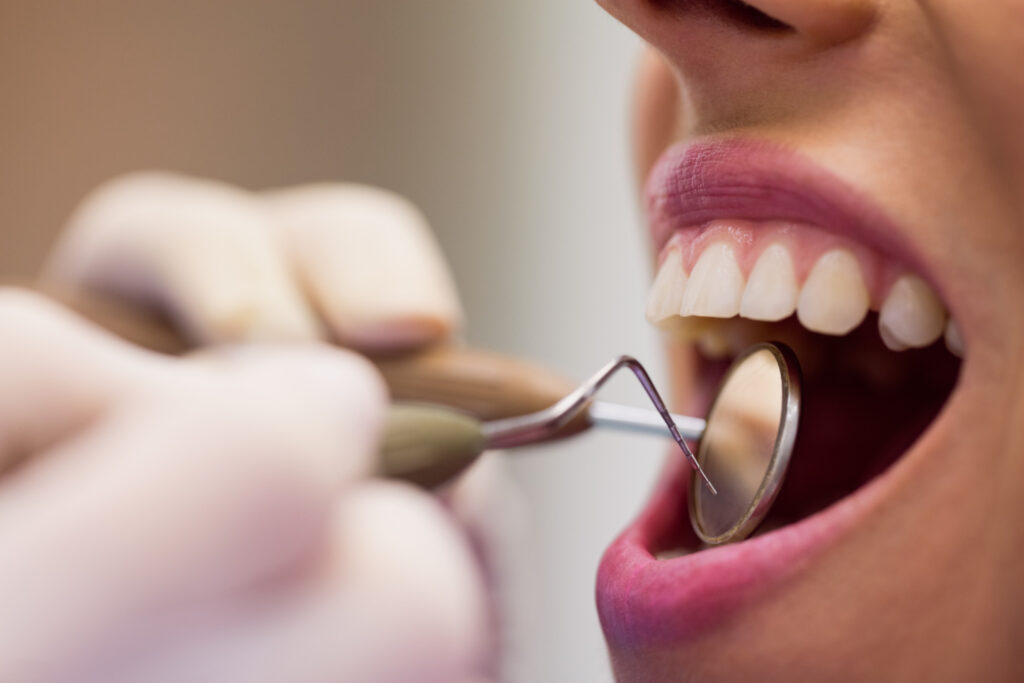You’ve been brushing twice a day religiously since childhood, so why does your dentist still find things to worry about at every visit?
If this sounds familiar, you’re definitely not alone. Most of us learned the “brush and floss” mantra early on, but honestly? That’s just scratching the surface of what our teeth actually need to stay healthy and happy.
After talking to friends who work in dental offices and diving into some fascinating research about oral health, I’ve discovered there’s a whole world of tooth care that goes way beyond what we learned in elementary school health class. Some of these insights might surprise you – they certainly surprised me!
The Plot Twist: Your Mouth is an Ecosystem
Here’s something that completely changed how I think about oral care: your mouth isn’t just a place where food goes before it hits your stomach. It’s actually a complex ecosystem with its own microbiome, pH levels, and delicate balances that affect everything from your breath to your overall comfort.
Think about it like this – if your mouth were a garden, most of us have been focused on just pulling weeds (brushing away plaque) without really thinking about soil health, proper nutrients, or creating an environment where the good stuff can thrive.
The Timing Game: When You Eat Matters More Than You Think
One thing that blew my mind was learning about timing. We’ve all heard “don’t eat too much sugar,” but what about when you eat it?
Research shows that snacking throughout the day – even on healthy foods – keeps your mouth in a constant state of acid production. Every time you eat something, bacteria in your mouth produce acids that can weaken tooth enamel for about 20-30 minutes afterward.
So that afternoon apple slice habit? Those mindful handful-of-nuts breaks? While nutritious, they might be keeping your mouth in “acid mode” longer than ideal. Instead of grazing all day, try consolidating your eating into distinct meal times when possible, giving your mouth time to neutralize and recover between meals.
The Saliva Situation: Your Mouth’s Unsung Hero
Let’s talk about something we rarely discuss but is absolutely crucial – saliva. It’s like your mouth’s personal cleaning crew, working 24/7 to neutralize acids, wash away food particles, and even deliver minerals that help strengthen teeth.
But here’s the catch: many things we do daily can reduce saliva production. Certain medications, breathing through your mouth (especially at night), dehydration, and stress all impact how much saliva your body produces.
Some simple ways to support your natural saliva production:
- Stay hydrated (but not just with water – herbal teas count too!)
- Chew sugar-free gum after meals
- Practice conscious nose breathing, especially while sleeping
- Include naturally saliva-stimulating foods like celery, carrots, and citrus fruits in your diet
The Surprising Connection: What You Drink Matters as Much as What You Eat
We often focus on food when thinking about oral health, but beverages deserve equal attention. And no, I’m not just talking about the obvious culprits like soda.
Even healthy drinks can impact your teeth in unexpected ways. That morning lemon water? The antioxidant-rich green tea? Your afternoon kombucha? All acidic. Even sparkling water has a lower pH than regular water.
I’m not suggesting you give up these beneficial drinks – just consider how you consume them. Using a straw directs liquids away from teeth, and rinsing with plain water afterward helps neutralize acids quickly.
Coffee lovers, here’s a tip that changed my morning routine: instead of sipping that cup slowly over an hour, try drinking it within a shorter timeframe, then rinsing with water. Your teeth experience less prolonged acid exposure, and you still get to enjoy every caffeinated moment.
The Texture Revolution: Why How You Eat Matters
This one might sound weird, but bear with me – the physical act of chewing plays a huge role in oral health that goes beyond just breaking down food.
Fibrous foods like raw vegetables, nuts, and whole grains naturally stimulate saliva production and provide a gentle cleaning action. They’re like nature’s toothbrush! Meanwhile, soft, sticky foods (even healthy ones like dried fruits) tend to cling to teeth longer.
I started incorporating more “cleansing” foods into my meals – ending lunch with raw carrots or celery, choosing an apple over applesauce, picking whole nuts over nut butter when possible. It’s not about restriction; it’s about balance and giving your teeth different textures to work with.
The Overnight Shift: Why Your Sleeping Habits Matter
Here’s something most people don’t realize: your mouth’s environment changes dramatically while you sleep. Saliva production slows down, making nighttime a critical period for oral health.
Mouth breathing during sleep is surprisingly common and creates a dry environment where bacteria can thrive. If you often wake up with a dry mouth or morning breath that seems excessive, consider:
- Keeping your bedroom humidifier running
- Staying extra hydrated before bed
- Sleeping with your head slightly elevated
- Looking into whether nasal congestion might be forcing mouth breathing
Also, that late-night snack habit? Your mouth doesn’t have the same cleaning power overnight as it does during the day when saliva production is higher.
The Stress Connection: Mental Health Meets Oral Health
This connection fascinated me the most. Stress doesn’t just affect your mind – it shows up in your mouth too. Stress can lead to teeth grinding (even if you’re not aware you’re doing it), jaw clenching, and changes in saliva composition.
Many people grind their teeth at night without realizing it, waking up with jaw soreness or headaches. If this sounds familiar, stress management techniques like meditation, yoga, or even simple breathing exercises before bed might help break the cycle.
Some people find that keeping a stress journal helps them identify patterns – maybe you clench your jaw during certain work tasks or grind your teeth on particularly anxious nights.
The Tool Talk: Beyond the Basic Toothbrush
While brushing and flossing remain important foundations, there are some additional tools that can level up your oral care routine:
Tongue scrapers – Your tongue harbors bacteria that contribute to bad breath and overall oral health. A gentle scraping in the morning can make a noticeable difference.
Water flossers – These aren’t just for people with braces. They can reach areas traditional floss might miss and are especially helpful for cleaning around gums.
Electric toothbrushes – Many people find they remove plaque more effectively than manual brushing, plus they often have built-in timers to ensure you’re brushing long enough.
Oil pulling – This ancient practice involves swishing coconut or sesame oil in your mouth for 10-15 minutes. While research is still emerging, many people report fresher breath and cleaner-feeling teeth.
The Habit Stack: Making Changes That Actually Stick
Let’s be real – knowing what to do and actually doing it consistently are two different things. The key is building new habits gradually, connecting them to things you already do.
Instead of overhauling your entire routine overnight, try picking one or two changes that feel manageable:
- Drink your morning coffee through a straw
- End each meal with a few raw vegetables
- Keep a water bottle at your desk for regular hydration
- Set a phone reminder to do some deep breathing exercises before bed
Small, consistent changes tend to stick better than dramatic overhauls that feel overwhelming.
The Reality Check: It’s About Progress, Not Perfection
Here’s the thing I’ve learned through all this research and experimentation – perfect oral health isn’t about following every rule every time. It’s about understanding how different factors affect your mouth and making informed choices that work for your lifestyle.
Some days you’ll drink that wine slowly over dinner. Sometimes you’ll stress-eat snacks throughout the afternoon. That’s life! The goal is developing awareness and having strategies to support your oral health most of the time.
The Bigger Picture: Why This All Matters
Taking care of your teeth isn’t just about avoiding cavities or having fresh breath (though those are nice bonuses). Your mouth is connected to your overall well-being in ways we’re still discovering.
When you invest in practices that support your oral health ecosystem, you’re investing in your comfort, confidence, and long-term wellness. Plus, let’s be honest – feeling good about your smile affects how you interact with the world.
Making It Personal: Finding What Works for You
Everyone’s mouth is different, and what works for one person might not work for another. Pay attention to how different foods, drinks, and habits affect how your mouth feels. Do you notice patterns between stress levels and jaw tension? Does your mouth feel different when you’re well-hydrated versus dehydrated?
This awareness helps you become an active partner in your oral health rather than just following generic advice.
The Takeaway
The world of oral care extends far beyond brushing and flossing, though those remain important foundations. By understanding your mouth as a dynamic ecosystem affected by what you eat, when you eat, how much you sleep, stress levels, and daily habits, you can make informed choices that support your oral health naturally.
Remember, these lifestyle approaches complement but don’t replace regular dental care. Think of them as ways to give your teeth and gums the best possible environment to stay healthy between professional visits.
The next time you’re munching on raw carrots, staying hydrated, or practicing stress management, you can smile knowing you’re supporting your oral health in ways that go beyond the basics.

Disclaimer: This article is for informational and educational purposes only and is not intended as medical or professional advice. The content provided should not be used for diagnosing or treating any health condition. Individual oral health needs vary, and what works for one person may not be suitable for another. Always consult with qualified dental professionals for personalized guidance regarding your oral health. The author and publisher are not responsible for any actions taken based on the information provided in this article.
Sources & References:
- Journal of The American Dental Association (JADA) – Various articles on saliva function and oral ecosystem health
- Academy of General Dentistry research on dietary timing and oral health
- International Association for Dental Research findings on stress and oral health connections
- National Institute of Dental and Craniofacial Research educational materials
- Various peer-reviewed studies on oral microbiome and pH balance in the mouth



